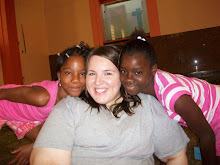
Going to a private Christian university introduced me to a variety of awkward topics of conversation. I have a feeling that the kids in the LSU cafeteria aren't talking about appropriate physical boundaries in dating relationships or how their prayer life is going. One of my personal favorites? “What’s your love language?”
At first, I wasn’t quite sure what that meant. I vaguely remembered a flowery purple book on the subject, sitting atop a dusty bookshelf in my dad's library but I didn’t know people my age actually read it, or that it was important enough to bring up in an introductory chat among acquaintances. I then got my first run-through of the love languages, something that would be repeated again and again in class discussions and in late-night girly talks in the dorms. I even had friends in more serious marriage-bound relationships who read the book as a couple, marking parts that they felt would enlighten their beloved. At first, I latched onto the theory. It’s interesting and romantic and it makes sense … right?
For those of you who aren’t familiar with the theory, it comes from Gary Chapman’s The Five Love Languages and proposes the idea that each of us gives and receives love in different ways. While the main application is intended for marriage, it can be seen across the spectrum of relationships, and there have even been subsequent editions of the book focused on singles and children. The five categories are: Words of Affirmation, Acts of Service, Gifts, Quality Time and Physical Touch. Typically, people will have one or two that are their primary love language. For example, when I was tested I scored highest in Physical Touch, closely followed by Quality Time. Anyone want to hold hands for an hour?
But as time goes by, I’ve begun to fear that love has been lost in translation. We may have even taken this idea of love languages, which is meant to inspire us to look at the needs of others, and turned it around to diagnose and defend selfish tendencies. Perhaps the languages could be seen as a starting point, a healthy place to begin developing love. But I’m not yet convinced that you are confined to this, or that by determining which one is your “favorite” you will somehow improve in the art of loving.
The love languages (when abused) give us room to be lazy. They allow us to write off the efforts of others, or to limit our own. “Well, nice try, but that’s not how I best receive love.” They tell you that love only translates when everyone is comfortable. I can't tell you how many girls I have who have convinced themselves that problems in their relationships are entirely chalked up to the fact that their boyfriend doesn't speak their love language. But love isn’t about comfort, is it? More often than not, it’s about sacrifice.
When Jesus spoke of love, whether for your neighbor, spouse, or enemy, He pictured a holistic love, one that doesn’t ask for anything in return. He taught, with His words and actions, that there is no greater love than to lay down one’s life. He did this physically, to the point of death. And yet, we have such difficulty with simply setting aside our wants, intentions, insecurities and agendas. Even marriage is supposed to be an imitation of the way Christ fully loves the Church, His “bride.” So why does our version of love seem so finicky and particular?
Consider 1 Corinthians 13 (MSG): “Love never gives up. Love cares more for others than for self. Love doesn't want what it doesn't have. Love doesn't strut, Doesn’t have a swelled head, Doesn’t force itself on others, Isn’t always 'me first,' Doesn’t fly off the handle, Doesn’t keep score of the sins of others, Doesn’t revel when others grovel, Takes pleasure in the flowering of truth, Puts up with anything, Trusts God always, Always looks for the best, Never looks back, But keeps going to the end.”
True fulfillment, outside of our own fickle “needs,” beyond the shortcomings of society’s depiction of “love,” is only found within the grace and compassion of Christ. Sometimes the people who you love won't fully appreciate you, sometimes you won't value them like you should. Life is messy. Just remember that “love is patient, love is kind.” Look to a God who loves unconditionally, and figure out how you can do the same with those around you. May we all learn to do what love requires.


1 comment:
Shannon, I really like what you have to say. I haven't read Love Languages, but I have been involved in plenty of those "awkward conversations" at ACU. It does sound like we're trading in powerful, transformative, God-as-source love for comfortable, selfish, romantic comedy love. Like you said, I think the concept of love languages can be really helpful in learning how to best display love to the people with whom we are most connected...but we definitely err when we use them to deny or ignore love from others OR to limit what love asks of us. Like you said, love is about sacrifice.
Post a Comment